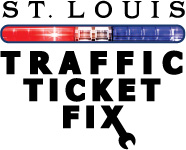If you are arrested for driving while intoxicated, a police officer will ask you to submit to a chemical test to determine your blood alcohol content or drug level. A breathalyzer test uses a diagnostic device to estimate a person’s blood alcohol content (BAC). The State of Missouri deems you to have consented to such testing under its “implied consent” law. Refusing a breathalyzer test in Missouri can result in significant legal penalties.
Missouri Law and Your Rights
Missouri law specifies that all individuals who operate a vehicle within the state are deemed to have consented to DWI chemical testing under the following circumstances:
- They have been arrested, and there are reasonable grounds to believe they were operating a vehicle while intoxicated.
- They are under 21 years old, and there are reasonable grounds to believe they were operating a vehicle with a BAC of at least .02%.
- They were involved in a serious or fatal vehicle collision.
Consequences of Refusal
An officer may legally request a breath, blood, or urine test from a driver who has been arrested in Missouri for driving under the influence. Although some attorneys will advise you never to submit to a breathalyzer test, refusal to test has certain consequences. The state will impose several penalties for refusing a breathalyzer test, including license suspension and other restrictions.
License Revocation
Drivers who refuse a lawful request by an officer to take a breath, blood, or urine test face a one-year license revocation – this is known as “Chemical Revocation.” If the driver has any prior alcohol-related enforcement contacts, a minimum six-month ignition interlock device requirement will follow the revocation. To receive limited driving privileges during a revocation, the motorist must prove that all vehicles they wish to operate are equipped with an ignition interlock device. Revocation and ignition interlock requirements are separate from any criminal repercussions resulting from a DWI conviction, and they may be imposed even if the DWI charge is subsequently dismissed.
Warrants
In most cases, a person who refuses to submit to having a chemical test cannot be forced to test. Missouri’s implied consent statute does permit a driver to decline to test. However, when a driver refuses to test, police can still obtain a warrant to draw blood. When a judge issues a warrant to draw blood for testing, the person no longer has the right to refuse to test, and police are permitted to do the blood draw by force if necessary.
Evidentiary Uses of Chemical Testing
Refusing a breathalyzer test in Missouri will not protect you from a DWI conviction. Some drivers falsely believe they cannot be convicted of a DWI without a valid chemical test. Other evidence can support a DWI conviction, including the results of a field sobriety test, the arresting officer’s testimony, and eyewitness testimony. Refusing testing can be used against you if your case goes to trial. While refusal doesn’t prove intoxication, prosecutors often successfully argue that a refusal indicates that the driver was trying to hide intoxication.
Are There Times When a Driver Should Refuse Testing?
There is no simple answer to this question. There are many negative consequences to refusal. If the driver knows they are sober, refusing chemical testing forfeits a chance to prove their innocence. However, false positives on tests are possible. Contacting an attorney before deciding whether or not to take a chemical test is essential. The process can be confusing. By law, you have 20 minutes to determine if you agree to take or refuse a breathalyzer test. Drivers should always ask for an attorney to get expert advice before proceeding and create an opportunity to mount a defense.
Talk To An Experienced DWI Attorney
You should talk to an experienced DWI lawyer anytime you are arrested for driving while intoxicated in Missouri. DWI law is complicated and constantly changing. A breathalyzer test may issue a false positive if you have certain medical conditions or the test was incorrectly calibrated. Blood tests can be challenged on numerous grounds in Missouri DWI cases. Specific requirements must be followed in extracting, storing, moving, and testing blood samples. A qualified DWI attorney can explain how the law applies to your situation and help you decide the best way to handle your case.
Contact St. Louis Traffic Fix
If you are arrested for DWI in Missouri, you need to hire an attorney as soon as possible. A reputable, experienced DWI attorney can help fight your case and protect your rights. When you need help with a speeding ticket, DWI, traffic accident, or another issue, call the experts at St. Louis Traffic Fix. We proudly represent clients in St. Charles, Lincoln, Warren, and St. Louis Counties. We help clients resolve traffic issues in a timely and beneficial manner. Call us at 636-685-0440 to schedule a consultation.
